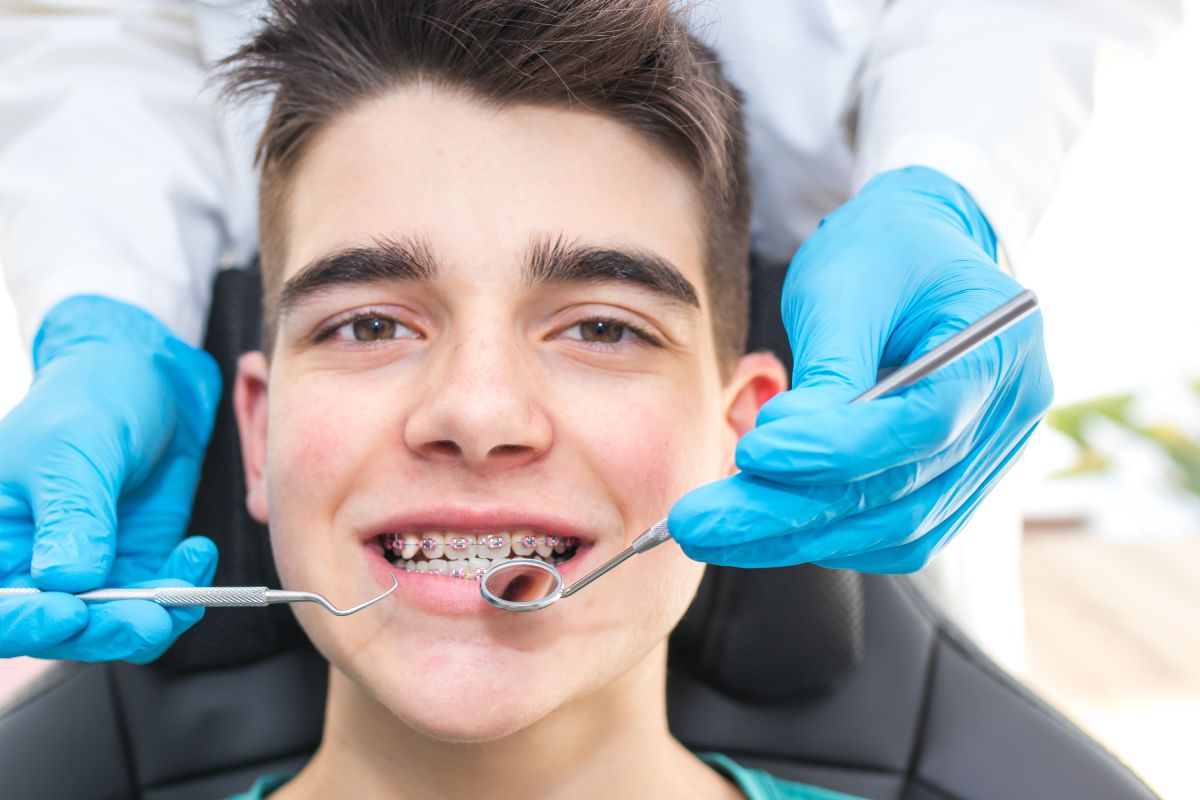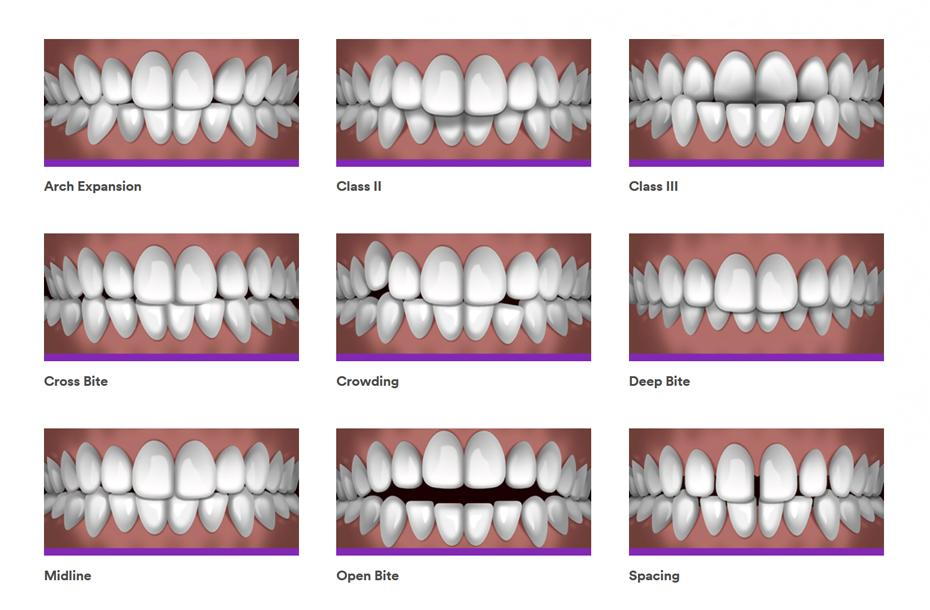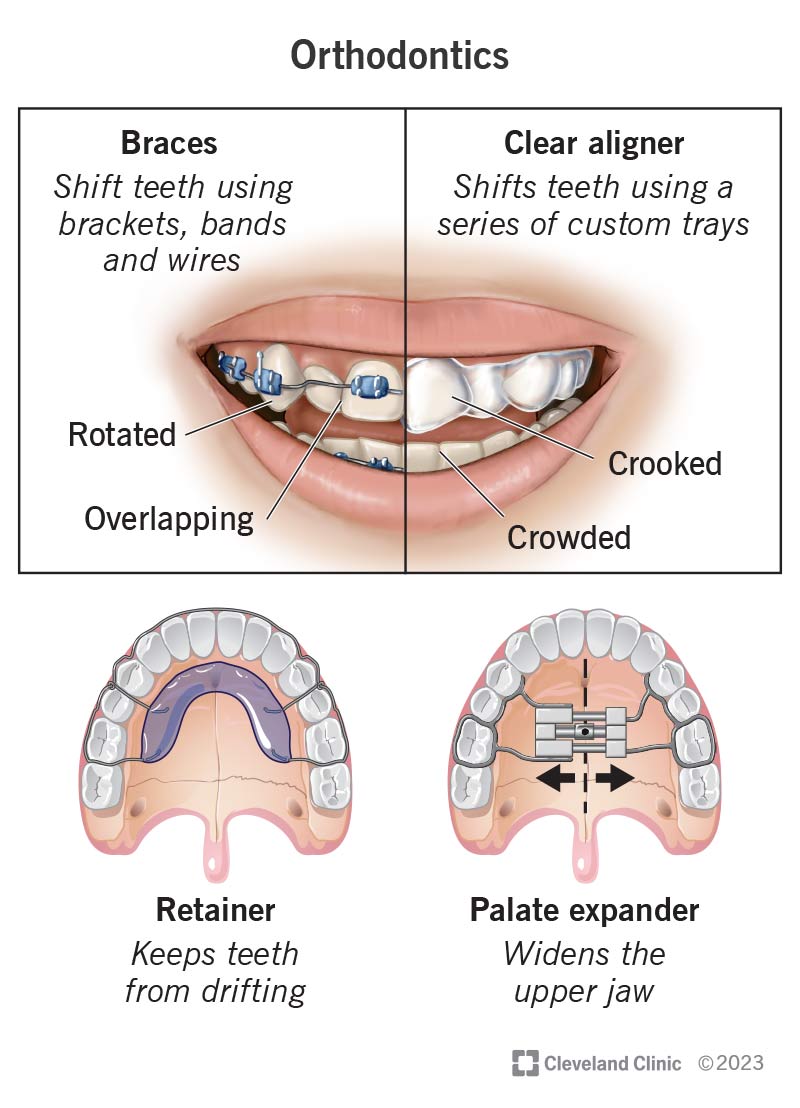3 Easy Facts About Causey Orthodontics Shown
3 Easy Facts About Causey Orthodontics Shown
Blog Article
What Does Causey Orthodontics Mean?
Table of Contents5 Simple Techniques For Causey OrthodonticsAn Unbiased View of Causey OrthodonticsThe Main Principles Of Causey Orthodontics The Only Guide for Causey Orthodontics9 Simple Techniques For Causey OrthodonticsIndicators on Causey Orthodontics You Should KnowThe 25-Second Trick For Causey Orthodontics
What is the difference in between a dental professional and an orthodontist? To respond to an inquiry that is usually asked, both dentists and orthodontists aid clients obtain far better oral health, albeit in different ways. It aids to bear in mind that dental care is a rather wide scientific research with different medical field of expertises. All dental experts, including orthodontists, deal with the teeth, gums, jaw and nerves.
You can believe of both doctors who treat periodontal and teeth issues. The main distinction is that ending up being an orthodontist calls for a specific specialty in treating the imbalance of the teeth and jaw.
Excitement About Causey Orthodontics
An orthodontist is a dentist that has undertaken training to specialize in the diagnosis, prevention and treatment of abnormalities in the jaw and teeth. They can likewise identify potential troubles in teeth placement that might create when conditions are left unattended (affordable orthodontist near me).
This consists of all the necessary education to come to be a basic dental practitioner. According to the American Student Dental Organization (ASDA), it means you will certainly require to have either a Medical professional of Medication in Dentistry (DMD) or a Physician of Dental Surgical Procedure (DDS). To put it simply, orthodontists require to complete oral institution and afterwards get an orthodontics specialty education and learning.
Some orthodontists likewise get their masters in craniofacial biology. These programs focus on two particular areas or self-controls: Dentofacial Orthopedics: This research focuses on guiding teeth and jaw development.
Rumored Buzz on Causey Orthodontics

 These consist of device such as braces, retainers and Invisalign. So, what does an orthodontist do, and what do they concentrate on? The overall goal of an orthodontist is to enhance an individual's bite. Not everyone is born with straight teeth, and an orthodontist will make certain that patients get equally spaced straight teeth.
These consist of device such as braces, retainers and Invisalign. So, what does an orthodontist do, and what do they concentrate on? The overall goal of an orthodontist is to enhance an individual's bite. Not everyone is born with straight teeth, and an orthodontist will make certain that patients get equally spaced straight teeth.
Facts About Causey Orthodontics Revealed
The American Association of Orthodontists recommends your first check up by age 7. You'll require to see your orthodontist if you have an imbalance in your teeth, additionally called malocclusion. If you see uneven bite patterns, a somewhat misshapen jaw, or when your teeth are chock-full, you will likely need orthodontic therapy.
At Advanced Orthodontics, we give patients with a alternative treatment experience. In enhancement, we provide adjustable treatment routines, flexible payment options and an enjoyable, delightful experience. Call ( 480) 357-4900 today for additional information and timetable an appointment.
An orthodontist is a dental professional educated to detect, stop, and deal with teeth and jaw irregularities. Orthodontists work with individuals of all ages, from kids to adults (https://youbiz.com/profile/causeyortho7/).
Causey Orthodontics Fundamentals Explained
Malocclusion, or misaligned teeth, can result in oral problems, including dental caries, gum tissue condition, and tough or uncomfortable chewing. Yet not every person is birthed with straight teeth. If you have a bad bite or big spaces in between your teeth, you might desire to speak with a dentist concentrating on orthodontic care.
(Picture Credit Scores: DigitalVision/Getty Images) Orthodontists make use of taken care of and detachable oral devices, like braces, retainers, and bands, to change the setting of teeth in your mouth. Orthodontic therapy is for oral abnormalities, including: Uneven teethBite issues, like an overbite or an underbiteCrowded teeth or teeth that are too much apartJaw misalignmentThe objective of orthodontic treatment is to improve your bite.
The Ultimate Guide To Causey Orthodontics

All orthodontists are dental professionals, yet not all dentists are orthodontists. Orthodontic residency programs use intensive, focused direction for dental experts. They concentrate on two locations: Exactly how to appropriately and securely move teeth How to effectively direct advancement in the teeth, jaw, and faceOnce an orthodontist has completed training, they have the alternative to come to be board licensed.
Malocclusion leads to tooth congestion, a misshapen jaw, or irregular bite patterns. Malocclusion is generally treated with: Your orthodontist attaches metal, ceramic, or plastic square bonds to your teeth.
More About Causey Orthodontics
If you have only small malocclusion, you might be able to utilize clear dental braces, called aligners, instead of conventional dental braces. Some individuals need a headwear to assist move teeth into line with pressure from outside the mouth. After dental braces or aligners, you'll need to use a retainer. A retainer is a custom device that keeps your teeth in area.
Report this page